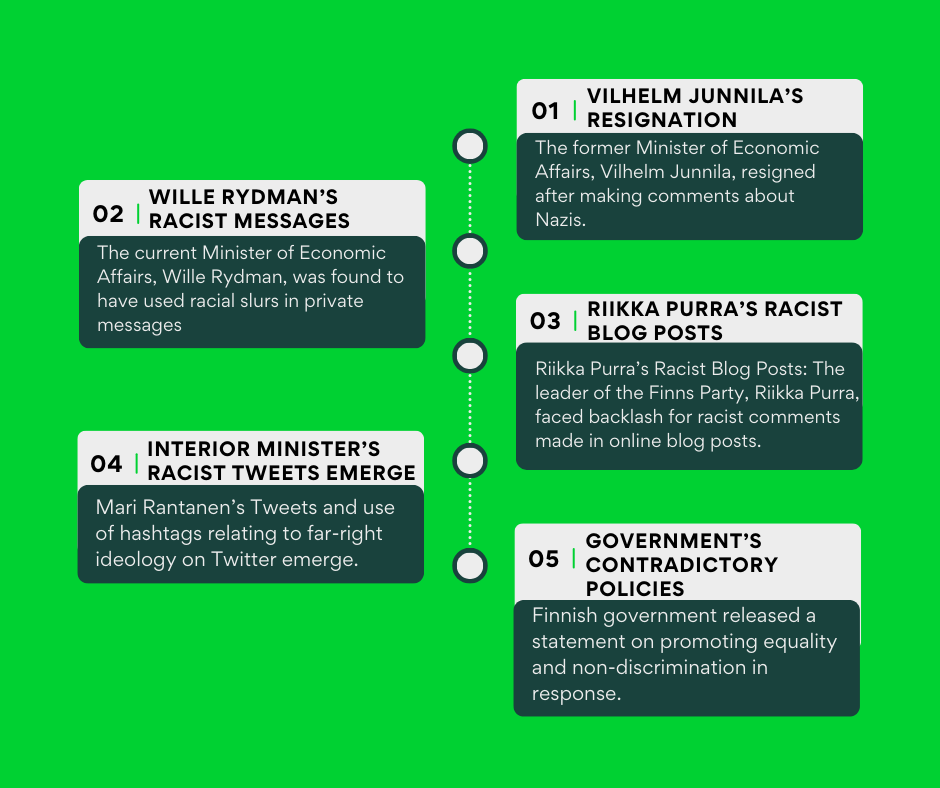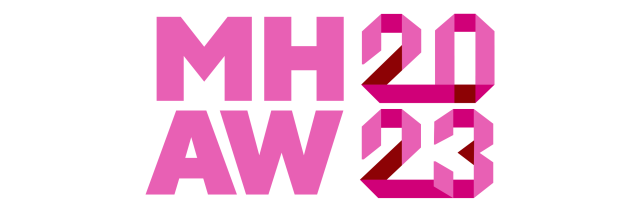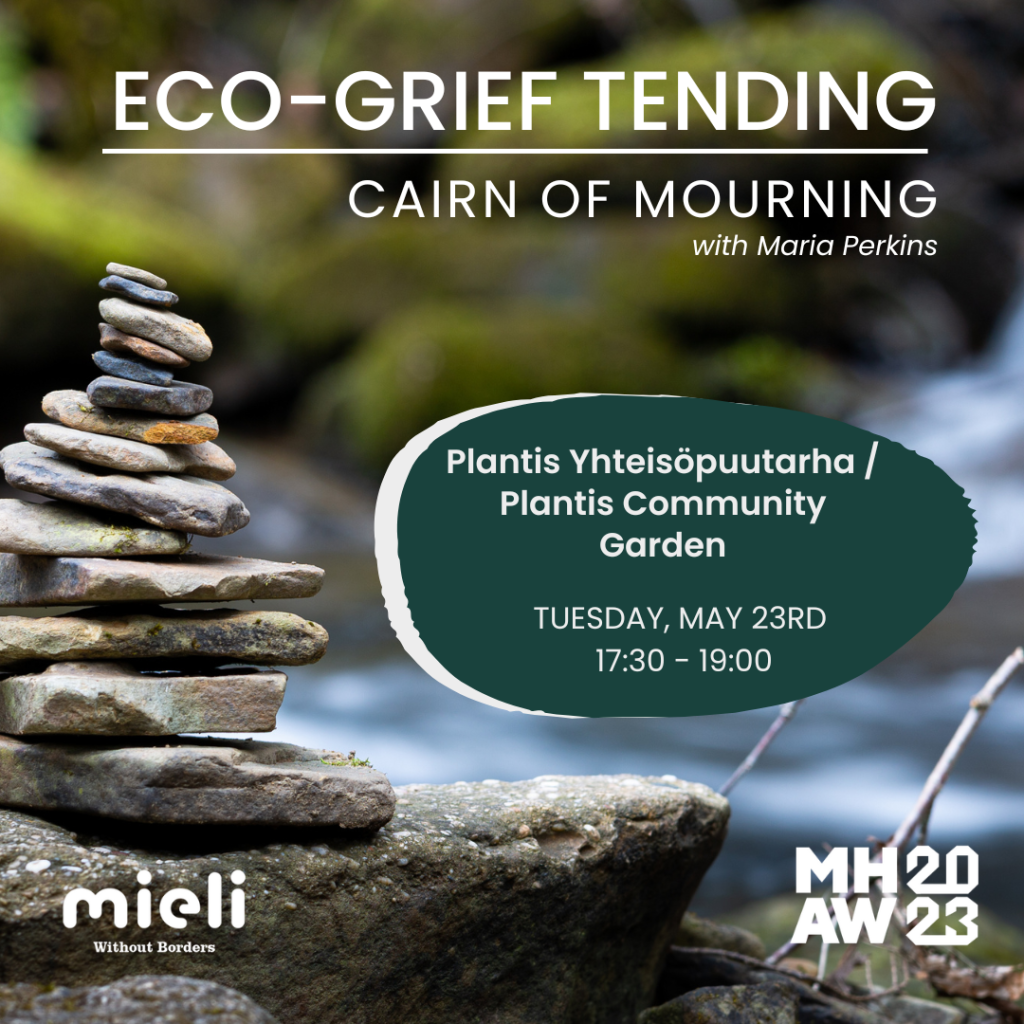By: Matias Tuxen
Navigating Challenges in Finland
As a mental health professional, I’m deeply interested in people and promoting well-being. As a foreigner in Finland, I know firsthand how challenging it can be to live away from one’s home country and loved ones. This is why building connections and making friends is so important. These relationships become our support system, sharing the joys and difficulties of our journey.
My first three years in Finland have been in the “Finnish environment,” surrounded by my Finnish family, colleagues, and friends. I also dedicated myself to learning Finnish culture, language, and history during this time. This experience gave me valuable insights into the “happiest country in the world.” Recently, however, I transitioned to working with the international community, which opened new perspectives and challenges.
This shift introduced me to MIELI Without Borders, a community-driven initiative promoting mental well-being among diverse groups. After attending their events and workshops, I felt inspired to join. Being part of a community like this allows us to learn from one another, receive support, and contribute toward shared goals.
Foreigners at Risk
As foreigners, we face unique mental health challenges due to relocation. Moving to a new country is inherently stressful, often triggering past experiences and requiring significant adaptability to ensure a smooth transition.
Common hurdles include:
- Cultural adjustment
- Social isolation
- Language barriers
- Employment stress
- Discrimination and xenophobia
- Administrative challenges
- Identity crises
These challenges may emerge early in the relocation process or surface unexpectedly later. The environment’s demands and the body’s responses can take a toll on mental health. Building a strong support network is key to navigating these difficulties and fostering a sense of belonging in a new home.
Mental Health and Healthcare in Finland
In many countries, mental health care and general healthcare are primarily private. In Finland, the public system ensures access to care, subsidized by the State. However, systemic barriers often discourage individuals from seeking help.
A study conducted by THL (Finnish Institute for Health and Welfare) between September 2021 and March 2022 surveyed 7,838 foreigners aged 20-74. It highlighted some alarming findings:
- One in three foreigners reported insufficient access to medical services.
- Between 27% and 38% experienced inadequate care across various well-being areas.
- 23% of women and 20% of men reported significant stress, with young adults experiencing the highest psychological burden.
- For individuals from Russia, the former Soviet Union, and Estonia, the situation has worsened since 2019.
Barriers to Accessing Care
Key reasons cited for not seeking healthcare include:
- Long waiting times
- Lack of awareness about available services
- Insufficient language skills
- Fear of discrimination
Researcher Castaneda explains, “The growth and magnitude of the proportion of people suffering from mental stress can be due to both newer causes, such as the COVID-19 pandemic and the war in Ukraine, and more traditional causes, such as tensions in the social atmosphere, discrimination, and difficulties in accessing suitable services.”
Personally, I have never faced discrimination in Finland, but I’ve heard stories from others. For instance, a pregnant woman shared that during a visit to HUS (Helsinki University Hospital), she was asked why her Finnish wasn’t fluent despite living in Finland for years. Instead of receiving empathy, she felt judged. Such incidents highlight the need for better cultural sensitivity and support within healthcare.
Institutional discrimination, though likely perpetrated by a small percentage of professionals, is equally troubling. It undermines trust and inclusivity, and addressing it must remain a priority.
What Can We Do?
As guests in this country, it is our responsibility to adapt to its culture and language. However, this does not mean abandoning our own values. It means embracing biculturalism—honoring both our heritage and the new culture we’re part of.
At the same time, we bring significant value to Finland, not only through our work but also by enriching its cultural fabric. We are helping to make Finland more diverse, even as some individuals hold on to outdated mindsets. In the next decade, Finland will likely become even more inclusive, thanks to the efforts being made now.
Change begins with us. By getting involved, participating in initiatives, and speaking up against injustices, we can drive progress. Discrimination is not unique to Finns; it exists in all societies. Challenging stereotypes and fostering mutual understanding is crucial.
This is what I appreciate about MIELI Without Borders: they create safe and inclusive environments, empowering marginalized communities and promoting empathy and inclusion. Beyond workshops, there’s a need for broader societal involvement, including politics, to amplify the voices of foreigners and drive systemic change.
Final Thoughts
Finland’s mental health and healthcare systems are well-structured, yet challenges remain. Long wait times, overburdened hospitals and workers, and the need to “exaggerate” symptoms to secure appointments are ongoing issues. However, emergencies must always be addressed rapidly and equitably, regardless of language or background.
Finland has historically been an isolated nation, with significant immigration starting only in the late 1990s. Today, the international community makes up about 10% of the population. While Finland remains an individualistic society, there is a strong collective will for positive change. Institutions are actively working to promote well-being and openness to foreigners, even if societal transformation takes time.
While Finland offers an “everyday good life,” it also presents unique challenges: mastering the language, enduring long and dark winters, and navigating reserved social norms. By fostering a culture of openness and inclusion, we can shape a future where diversity is celebrated and all voices are heard. Together, we have the power to make Finland a more inclusive and welcoming home for everyone.
About the author

Matias Tuxen is a multifaceted professional whose interests span literature, arts, learning, development, and mental health. He holds a Master’s degree in Educational Psychology and a Bachelor’s degree in Psychology, with a strong background in working with individuals, children, and families. Passionate about empowering others and promoting well-being, he also teaches Spanish in schools and organizes activities at an NGO for children and adults.
He is committed to fostering community, promoting cultural connection, and advocating for a more egalitarian society.












